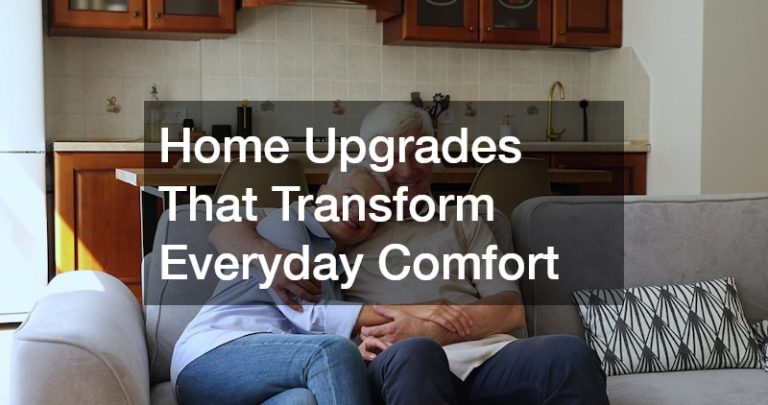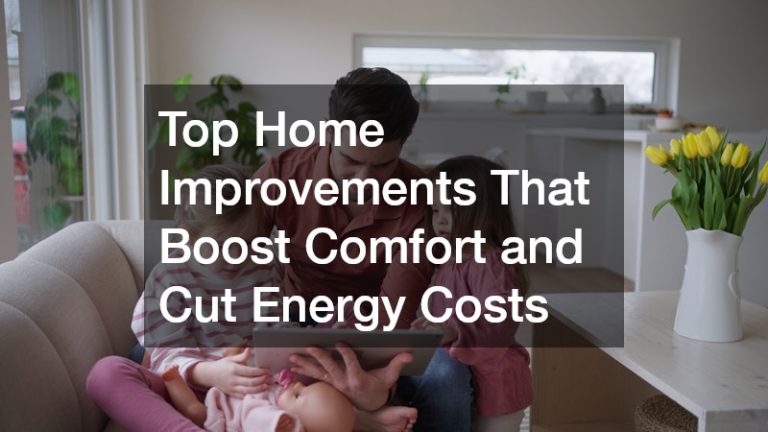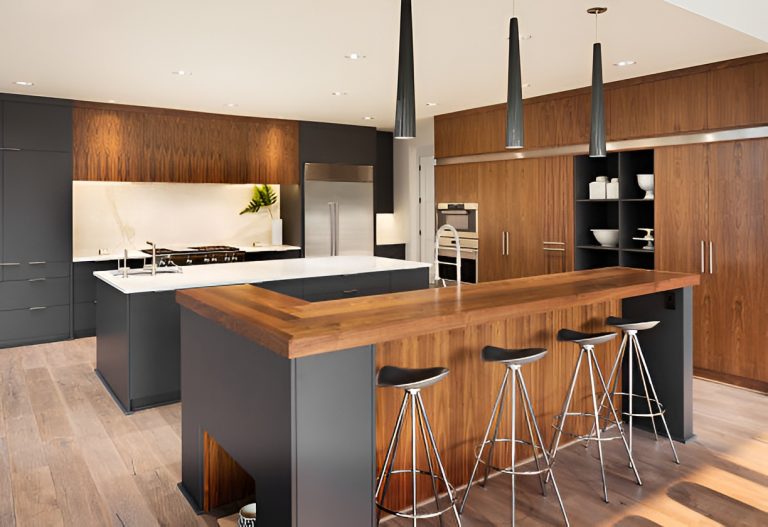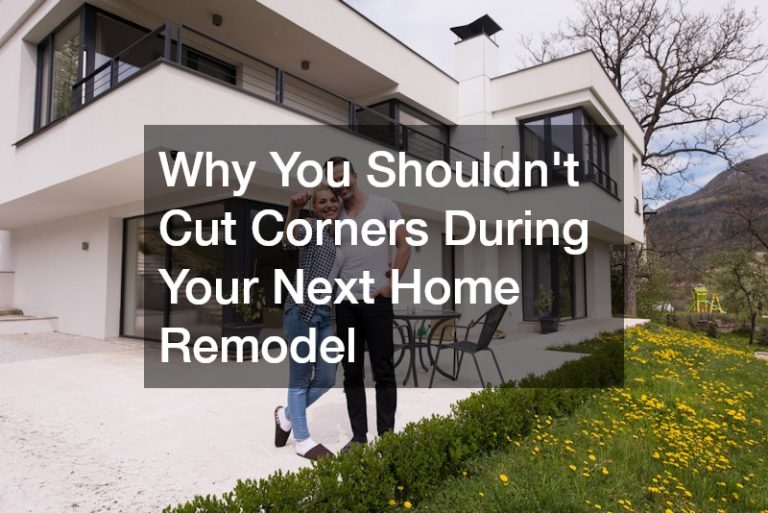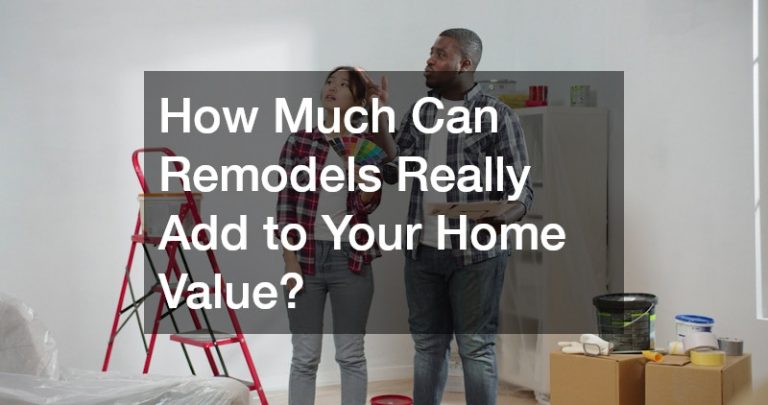

Finding your dream home is not an easy task. Aside from matching your budget with the home price, you must also ensure that the property fits your needs. Many people look online for homes for sale, but others prefer to attend open houses to see everything up close and personal, from the general living areas to the bathrooms and outdoor spaces. This is an excellent way to see how suitable the property is to your needs. But just looking around is not enough. You must also ask questions to know more about the property before you buy it. So, here are some questions to ask in an open house to help you unveil hidden gems or potential deal-breakers. Take note of each question to find the perfect home!
1. Does This House Have Central HVAC?
One of the first questions to ask in an open house should concern the HVAC system. Summers and winters can be brutal without a functioning temperature control system. And it’s not just for luxury. It’s essential if you want your home to last. Too much heat or cold can affect the home’s durability, making it less sustainable in the long run. Scoring a home with a functioning HVAC system ensures you’re ready to move in once the purchase is finalized.
Now, a central HVAC system means you’ll have a specific area in the property where a machine tempers and delivers the cold or hot air within the entire home through ducts. This can be more energy-efficient than having multiple air conditioning systems, each consuming electricity simultaneously throughout the day. It can also help make the home more comfortable if you want every room to have a consistent temperature all year round. If that’s not something you want, you can call an air conditioning installer to add separate units to cool or heat only specific rooms.
Depending on your needs, a central HVAC can be a good addition or a deal-breaker, so ask the agent or homeowner about it. You can always remove it if you don’t want it or have it installed if there’s no central HVAC on the property. However, you might have to shell out more money if you decide to change the HVAC system, so it’s always worth asking. Don’t hesitate to ask about the ducts essential to the cooling/heating system. It’s just a simple query that can persuade you to buy a home or not.
2. How Is This Home Heated?

Heating is also essential. You want the home to be warm and cozy during the winter, but without a good heating system, you’ll have to spend more on installations later. Even if the home has a central HVAC system that can cool and heat air, there are more ways than one to heat a house. So this is one of those questions to ask in an open house: How is the home heated?
Some homes may only rely on old-fashioned fireplaces and wood stoves to fight the winter cold. This is an acceptable heat source if you like the rustic appeal of natural heating. But it’s not enough if you’re looking at a large property. You’ll spend a lot on firewood, not to mention fireplace and stove maintenance and cleanings, which can be expensive. There’s also the higher risk of fires with these open-flame heat sources. Additionally, they’re not the most efficient or eco-friendly choices regarding heating systems.
Try finding radiators in the open house. This can mean the home is heated by a boiler system that uses natural gas or heating oil. This can be more efficient and reliable compared to the previous options. You can simply schedule heating oil deliveries and regular inspections to ensure the system functions as needed. But just to ensure those radiators heat the home, just ask, and you’ll get your answer.
3. When Was the Last Time the Roof Was Replaced?
The roof is crucial in a durable and long-lasting home. It must always be in the best condition because it protects the home structure from most elements. A roof that has not been repaired or, at least, inspected for the past few years can be a problem area for the homebuyer. You’ll have to spend a lot on roof repairs later because you’re unsure of the state of the roofing and the extent of the damage.
Of course, roofing doesn’t last forever. You might still have to spend on a few fixes here and there after buying the property because it will show signs of wear and tear after a few years. But a home that’s well cared for will have a properly maintained roof, meaning it doesn’t have significant issues like leaks or poor insulation. Therefore, one of the questions to ask in an open house is about the last time the owner replaced the roof.
A roof’s lifespan is usually around 25-50 years, depending on the materials used and the quality of the installation. Some areas also have harsher climates, so repairs and replacement may be more common. You want to ask the agent or owner about this to avoid costly renovations later. Try asking if you can view the roof up close and personal. It may look okay from the ground, but issues like missing shingles, sagging areas, and loose materials can drain your wallet in the future.
But if you’re still interested in the property despite the roof issues, you can use it as a point for negotiation. After all, it’s a crucial part of the house that should never be less than excellent. Look for the issues, discuss them with the owner, and make a more reasonable offer. You’ll live in this house, so make it a point to bargain as much as possible for your comfort.
4. What Kind of Driveway Is Out Front?

Curb appeal depends on several factors, from a beautiful porch to a well-maintained driveway. Although it’s not something you’ll immediately think about when buying a home, the driveway can affect how you live on the property. It’s not a place to park cars; it’s a welcoming path for people entering your home. You want it to be in good condition to avoid any issues later, so this is one of those questions to ask in an open house.
There are many kinds of driveways, but choosing the right one for your lifestyle is crucial. You’ll usually find classic asphalt, which is affordable and easier to maintain. There are also paved driveways with colorful and unique pavers. Other options include concrete, cobblestone, brick, and even gravel driveways. Each has its pros and cons, so you should ask about it to prepare yourself before buying the property.
The condition of the driveway also matters. For example, pavers look beautiful but may be more challenging to replace, especially if they are unique. You’ll have to hire a paving contractor to redo the whole thing if you cannot match the current design or it is beyond repair. If you have a heavier vehicle, you also want a driveway that can handle all that weight. Potholes and cracks can also make it less appealing, as unstable weather can worsen them. Keep your eyes open for these issues to ensure you only buy a home that lets you live in peace, not in constant worry.
5. Is This House in Good Shape?
Looks can be deceiving. Many homes look good with well-placed decorations and modern technology, but others hide secrets, from holes in the wall hidden through strategically placed photo frames to broken floor tiles covered with beautiful rugs and carpets. Before you decide to buy a home, remember one of these questions to ask in an open house: Is the house in good shape? Although you might not get an honest answer immediately, you should still ask this tough question and dig deep.
“Good shape” is very broad but should cover all the bases. For one, you want a clean home. You don’t want to see any weird stains on the ceiling or furniture. You also want to have dumpster rentals available in the neighborhood to know you have somewhere to dispose of the trash. Home sellers will go to great lengths to hide these dirty secrets, so look around as much as possible during the open house visit.
You should also ask about any recent renovations or ongoing maintenance. You don’t want to be caught off guard by these repairs. Learn as much as possible about the changes in the property to ensure the house is built to last. Otherwise, you’ll need house cleanout services to empty the house and redo everything. Do a bit of detective work after the visit as well. You can ask neighbors if they know anything. You may even look at public records for anything wrong with the property. You only want the best, so do the work and be rewarded well.
6. What’s in the Backyard?

Now, shift your focus to the home’s exterior and look at the backyard. “What’s in the backyard?” is one of the best questions to ask in an open house because it gives you an idea of how spacious and flexible the outdoor space is. You want to be able to host summer parties or tend to your garden to your heart’s content without being limited by the land area. This space should be a place where you’ll love to hang out.
Although a clean and empty yard will suffice, you may want to see other features. For one, lush green grass is good if you have children or pets. Wooden decks are also fine additions if you love hosting afternoon tea parties or eating a light breakfast outdoors. If you plan to have other additions, like a hot tub or an elevated garden, make sure you have space to spare. Some people even plan room additions, like a sunroom, a fire pit, or a tool shed. Ample space lets you get creative with the property. Whatever floats your boat, ask about the backyard and what it can offer buyers.
Make sure to ask for any issues as well. For example, some backyards are prone to flooding due to poor drainage. Some yards may also have compacted soil, which you must remedy to start a garden. You should know what you want to do with this backyard and ask about anything that can hinder your plans.
7. Does This Home Need to Be Remodeled?
You should always consider remodeling plans before buying a home property. Think of different questions to ask in an open house, from “Do I need to remodel the bathrooms?” to “Do the floors need refinishing?” As much as possible, you want a move-in ready home where little renovations are needed. This helps you visualize yourself living in this house without changing much.
For one, a beautiful kitchen is always in demand. You may want beautiful granite countertops to prepare food on and smart appliances to make your life much easier. Some people are more concerned about the layout. An L-shaped kitchen may suit your kitchen habits compared to a U-shaped island counter. If this space is not to your taste, you may need to schedule a kitchen renovation after the purchase.
Aside from aesthetics, you may ask if the house needs to be renovated for safety, convenience, and durability. For instance, it may still have that ugly popcorn ceiling that harbors dust in every little crevice, which you may want to remove before moving in. Some homes are not built with fire safety in mind, so you may need to add a sprinkler system to avoid fire accidents. Other structural issues, such as an unstable foundation or inefficient electrical system, may also come into play. Ask about these kinds of home problems to avoid paying more later.
8. How Old Is the Garage Door?

The last item on your list of questions to ask in an open house should involve the garage: “How old is the garage door?” Knowing the age of this essential piece of equipment in your home’s parking area helps you gauge the garage door’s efficiency and the garage space’s safety. Many people use the garage for storage, but if you have an expensive car, you need the garage door to be secure.
Garage doors can last long, but wear and tear from use plus the effects of the elements can break it down as time passes. You may also be someone who doesn’t like creaky doors, so you may need to schedule a garage door installation to fit your needs better. During the open house, peek into the garage and see how the garage door functions. This may be the final piece of the puzzle that makes you sign the documents or leave and go to the next potential property.
When looking for a new home, you should always have a list of questions to ask in an open house to check every factor influencing the purchase thoroughly. You must look at every detail, from the HVAC system to the garage door, to ensure you’re buying the perfect property. Make sure to inquire about everything, especially the essential areas that may lead to more expenses later for repairs. Don’t be afraid to ask about anything because this might be the home you’ll live in for the next few years. With the right questions, you can assess the property well and find the best home for your needs.

